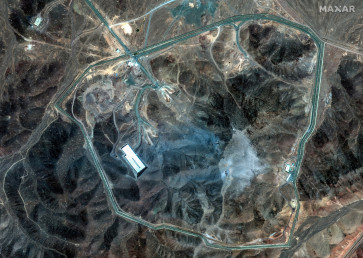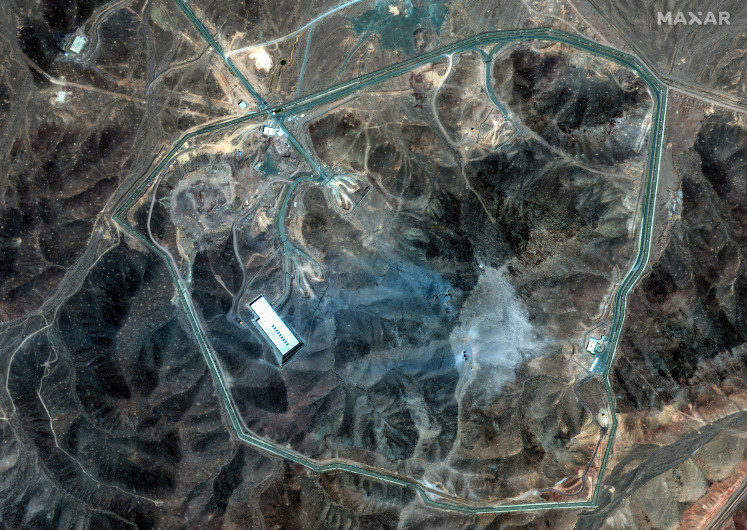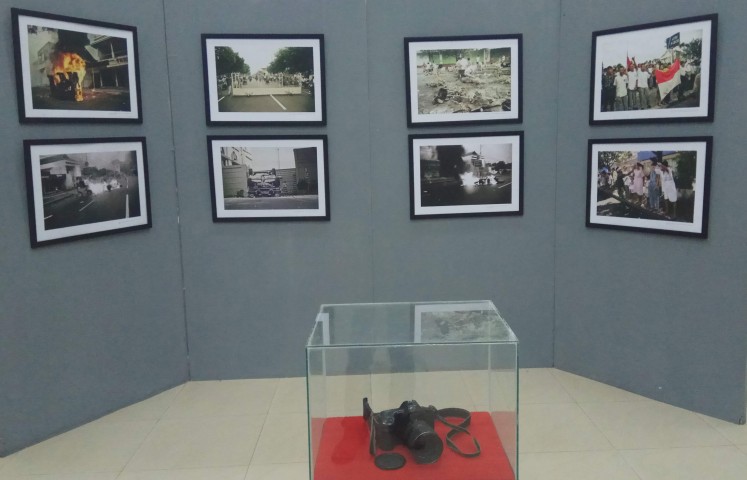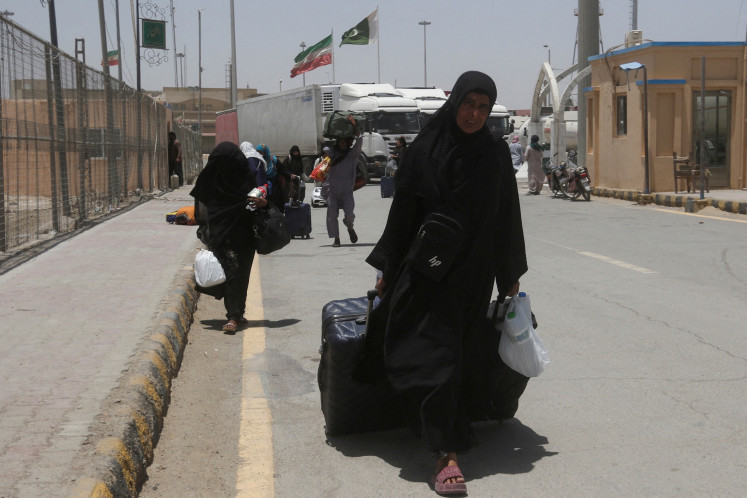Popular Reads
Top Results
Can't find what you're looking for?
View all search resultsPopular Reads
Top Results
Can't find what you're looking for?
View all search resultsGovt to ban Idul Fitri exodus again this year
Travel ban will take effect from May 6 to 17
Change text size
Gift Premium Articles
to Anyone
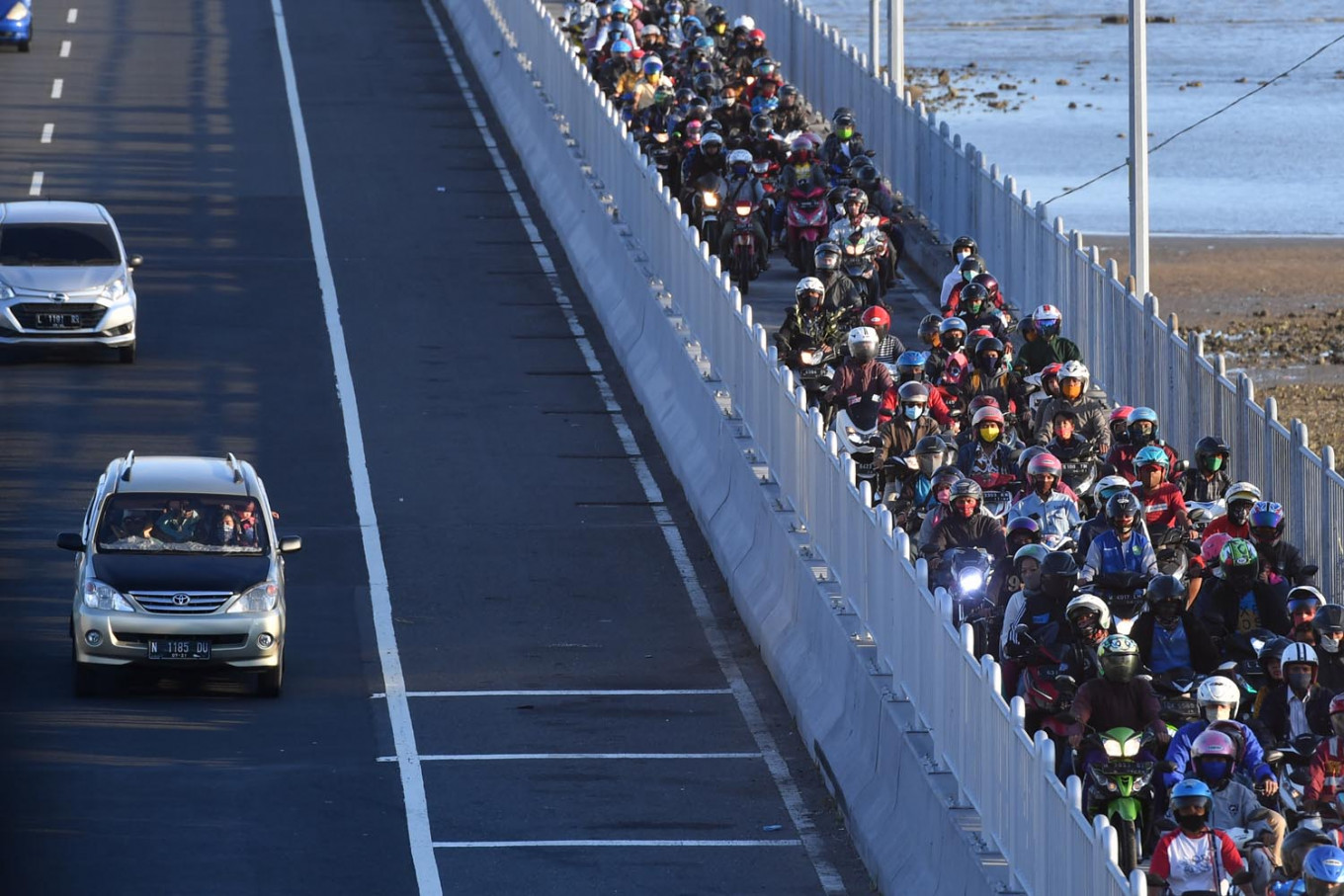
T
he government has banned the Idul Fitri tradition of mudik (exodus) for the second consecutive year to curb the spread of COVID-19, which has spiked after major public holidays in the past.
Coordinating Human Development and Culture Minister Muhadjir Effendy said the ban intended to prevent a spike in COVID-19 transmission and deaths after the holiday. Such an increase was observed early this year, after Christmas and New Year.
“Following a coordination meeting among ministers on March 23, it was decided that the government will ban mudik in 2021,” said Muhadjir during a virtual press briefing on Friday. “The ban is effective for civil servants, the military, the police and the general public.”
This year, Idul Fitri will begin on May 12 or 13, depending on the sighting of the moon. Under normal circumstances, some 20 million people in Greater Jakarta travel to their hometowns during the holiday.
Muhadjir said the ban would be in effect from May 6 to 17. He urged people to avoid nonessential travel outside of their cities of residence during the period to prevent a spike in COVID-19 cases.
As of Friday, health authorities had recorded nearly 1.5 million cumulative COVID-19 cases and about 124,000 active cases. The weekly test positivity rate – the number of cases detected out of the number of tests conducted – stood at about 13 percent on Friday.
Read also: Indonesia backs proposed WTO waiver to push for COVID-19 vaccine equity
Regulations specifying the mobility restrictions during the ban, the minister said, would be issued by related authorities after coordinating with the national COVID-19 task force.
In a separate statement, the Transportation Ministry announced it would issue technical rules on public transportation management and travel requirements during the mudik ban and would increase its supervision of public transportation operators and passengers. Out-of-town travel would be permitted only for urgent matters during the ban.
“The ministry will also prepare steps to ensure that logistics will be able to run smoothly to supply basic public needs and support the economic recovery amid the COVID-19 pandemic,” said Transportation Ministry spokesperson Adita Irawati.
This is the second year in a row the government has banned mudik.
President Joko “Jokowi” Widodo announced last year’s ban after reviewing a Transportation Ministry survey showing that 24 percent of respondents had plans to travel home for Idul Fitri.
Under the ban, travel in and out of virus-hit areas, which included Greater Jakarta, was prohibited. However, public transportation within the metropolitan area continued to operate for those who had to commute, such as health workers and hospital service staff.
Epidemiologist Dicky Budiman of Griffith University in Australia lauded this year’s ban, calling it the “scientifically right decision” given the uncontrolled outbreak in Indonesia and the national test positivity rate in excess of 10 percent. According to the World Health Organization, the test positivity rate should not exceed 5 percent.
“The safest and most appropriate method for Indonesia to prevent a worsening situation is to limit movement, such as with this mudik ban,” Dicky said, adding that it would help prevent increases in cases and mortality.
He called on the government to communicate the details of the movement restrictions well and to help the public understand the reasons behind the ban.
Epidemiologist Laura Navika Yamani of Airlangga University in East Java urged the government to enforce the ban more strictly than it had last year.
The government was criticized in 2020 for moving to enforce the ban too late. Hundreds of thousands of people had traveled to their hometowns by the time enforcement was in full effect, and some travelers eventually tested positive, increasing the risk of transmission in their hometowns.
"[Authorities] should tighten the entry and exit points for public transportation and regional borders," she said.
Read also: A year in COVID-19: Women in informal work prove mettle against pandemic blues
Indonesian Ulema Council (MUI) deputy chairman Anwar Abbas said the ban was “understandable” because infections and death rates in the country remained high.
“Public awareness of the importance of tackling COVID-19 is highly desirable. If we cannot deal with this, COVID-19’s social and economic impact will be costly,” Anwar said in a statement.
Organization of Land Transportation Owners (Organda) secretary Ateng Aryono, however, was not in favor of the ban, saying the government should instead enforce strict health protocols while permitting mudik.
He said last year’s mudik ban was only strictly enforced for public transportation, such as buses, while many private vehicles had avoided official monitoring by moving along smaller roads.
“If people do need to travel, they will travel anyway. This is about how to accommodate travel as safely as possible” Ateng said, as quoted by tempo.co.



